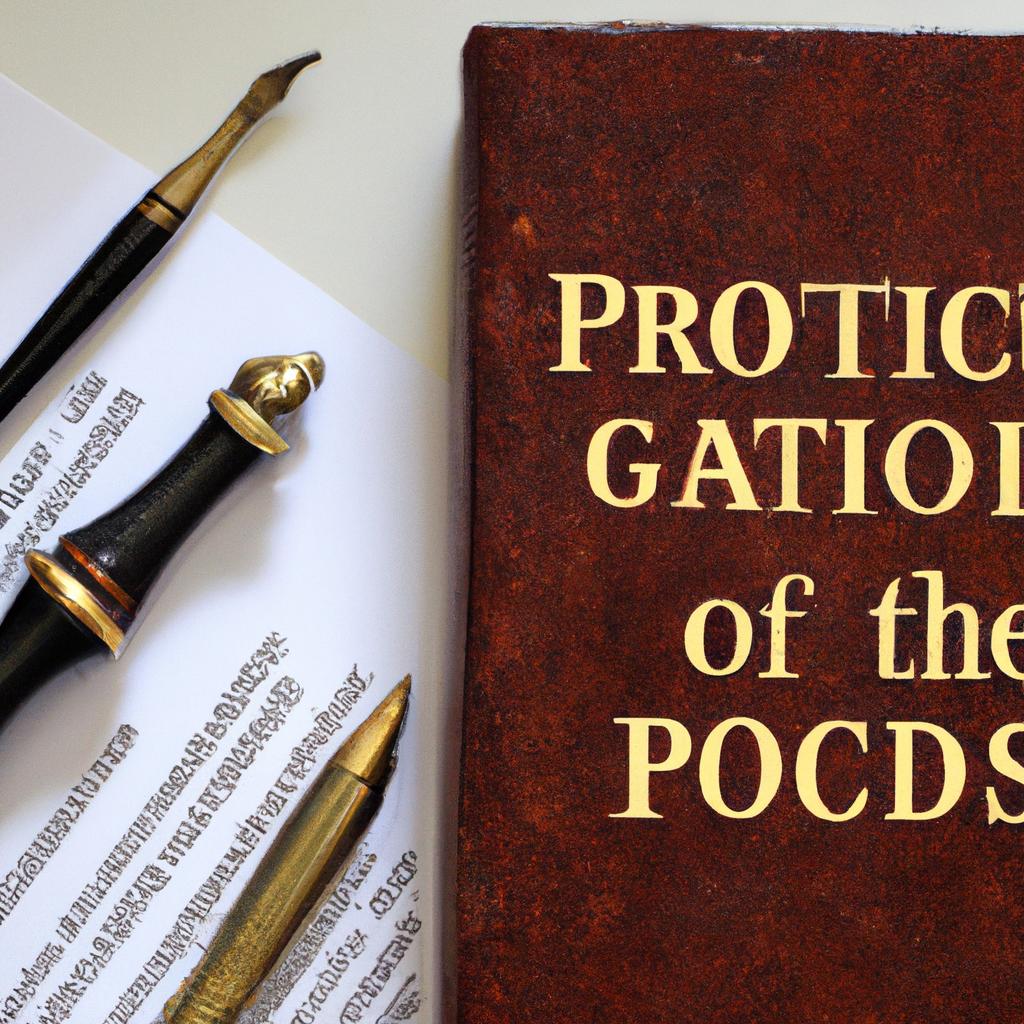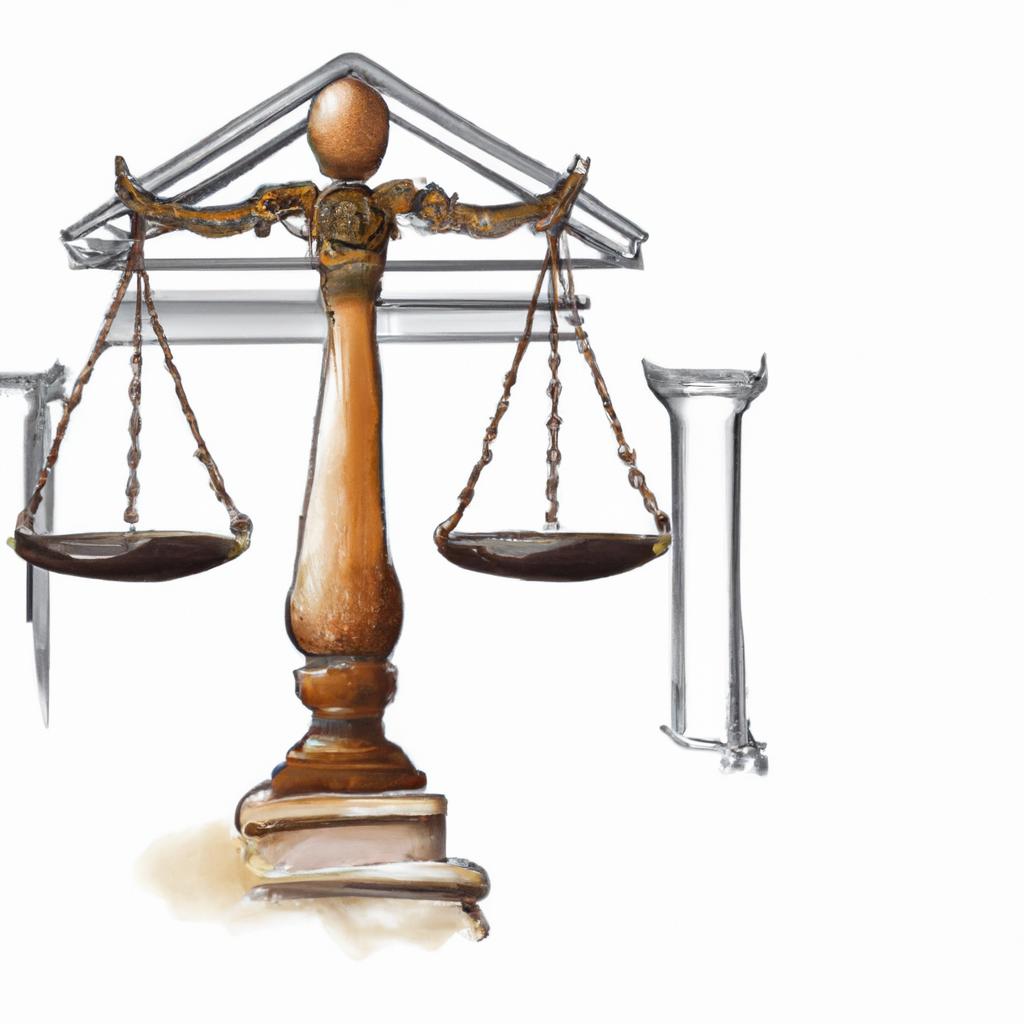Probate – the very mention of the term may strike fear into the hearts of individuals navigating the complexities of the legal system. However, understanding what “probated” means in court is crucial for anyone involved in matters related to estate planning, Wills, and trusts. As experienced attorneys at Morgan Legal Group in New York City, we are here to guide you through the intricacies of probate law and empower you with the knowledge needed to navigate the legal landscape with confidence and clarity.
Understanding the Probate Process: A Detailed Overview
Probate is a legal process that involves validating a deceased person’s will, identifying their assets, settling their debts, and distributing their property to beneficiaries. When a person passes away, their estate goes through probate court to ensure that their wishes are carried out according to the law. The probate process can be complex and time-consuming, requiring the expertise of a skilled probate attorney.
During probate, the following steps typically occur:
- Validation of the will
- Inventory of assets
- Notification of creditors
- Payment of debts
- Distribution of assets to beneficiaries
Understanding the probate process is crucial for anyone involved in estate planning or dealing with the estate of a deceased loved one. At Morgan Legal Group, our experienced estate planning attorneys can guide you through the probate process and ensure that your wishes are carried out effectively and efficiently.

The Legal Implications of Probate in Court Proceedings
Probate is a legal process that takes place after someone has passed away. It involves proving the validity of the deceased person’s will, taking an inventory of their assets, paying off any outstanding debts, and distributing the remaining assets to the beneficiaries. In court proceedings, probate plays a crucial role in ensuring that the deceased person’s final wishes are carried out according to the law.
When a will is probated in court, there are several legal implications that come into play. These can include:
- Ensuring validity: The court will carefully review the will to make sure it meets all legal requirements.
- Identifying assets: An inventory of the deceased person’s assets will be taken to determine their total value.
- Paying debts: Any outstanding debts or taxes owed by the deceased person must be paid off before the remaining assets can be distributed.

Key Recommendations for Navigating the Probate Process Successfully
When navigating the probate process, there are several key recommendations that can help ensure a successful outcome. It is important to approach the process with patience and diligence, as probate can be a complex and time-consuming procedure. One important recommendation is to seek the guidance of an experienced probate attorney who can provide valuable insight and assistance throughout the process.
Additionally, it is crucial to gather all necessary documents and information related to the estate in an organized manner. Keeping meticulous records and staying organized can help streamline the probate process and prevent unnecessary delays. Lastly, communicating openly and regularly with all parties involved in the probate proceedings, including beneficiaries and creditors, can help foster a smooth and efficient process.

Insights into Probate Court Procedures and Requirements
When a person passes away, their estate often goes through the probate process in court. But what exactly does it mean to have an estate probated? In legal terms, probate refers to the official proving of a will. This process involves validating the will and executing the deceased person’s wishes as outlined in the document. During probate court proceedings, the court will oversee the distribution of the deceased person’s assets and settling any outstanding debts.
Probate court procedures and requirements can vary depending on the jurisdiction, but some common steps include filing the will with the court, notifying heirs and beneficiaries, appraising the estate, paying debts and taxes, and distributing assets to the rightful beneficiaries. It is important to understand the probate process thoroughly to ensure that the deceased person’s final wishes are carried out properly. Working with an experienced estate planning attorney can help navigate the complexities of probate court and ensure a smooth process for all parties involved.
Q&A
Q: What does “probated” mean in court?
A: “Probated” in court refers to the process of proving a will’s validity in a court of law.
Q: Why is probate necessary?
A: Probate is necessary to ensure that a deceased person’s assets are distributed according to their wishes and that creditors are paid off.
Q: How long does the probate process typically take?
A: The probate process can vary depending on the complexity of the estate, but typically takes several months to a year.
Q: Are all assets subject to probate?
A: Not all assets are subject to probate. Assets with designated beneficiaries or held in a trust may bypass the probate process.
Q: Can probate be avoided?
A: Probate can be avoided through careful estate planning, such as creating a living trust or joint ownership of assets with rights of survivorship.
Q: What happens if a will is contested during probate?
A: If a will is contested during probate, a judge will oversee the dispute and make a decision on the will’s validity.
Q: Can an executor be removed during probate?
A: An executor can be removed during probate if they are found to be unfit or unable to fulfill their duties. This would typically require a court order.
Q: Are there alternatives to probate?
A: Yes, alternatives to probate include joint ownership, beneficiary designations, and setting up a trust. These can help assets pass directly to heirs without going through the probate process.
Future Outlook
In conclusion, understanding what it means for a will to be probated in court is essential for navigating the legal complexities of an estate settlement. By shedding light on this often misunderstood term, individuals can better prepare themselves for the inevitable processes that come with the passing of a loved one. As the judicial system assigns an executor to carry out the deceased’s wishes, probate serves as a necessary step towards ensuring a fair and orderly distribution of assets. So, next time you hear the term “probated,” you can rest assured knowing the significance it holds within the realm of law and estate planning.
 Understanding legal terms and court proceedings can be overwhelming for those without a legal background. One commonly misunderstood term is “probated,” which is often heard in the context of wills and estates. In this article, we will dive into what probate means in court and why it is an important process in ensuring the proper distribution of assets after someone passes away.
Understanding legal terms and court proceedings can be overwhelming for those without a legal background. One commonly misunderstood term is “probated,” which is often heard in the context of wills and estates. In this article, we will dive into what probate means in court and why it is an important process in ensuring the proper distribution of assets after someone passes away.
Probate is a legal process that takes place after someone dies to verify the authenticity of their will and oversee the distribution of their assets. The probate court, which is a specialized court that deals with these matters, has the authority to appoint someone to oversee the administration of the estate, ensuring that the deceased’s debts are paid and their assets are distributed according to their wishes. This person is usually referred to as the executor or personal representative.
During probate, the court will review the will to determine its validity. If the will is deemed valid, the executor will be granted the authority to handle the estate’s affairs. However, if there is no will or if it is found to be invalid, the court will appoint an administrator to carry out these duties. This administrator is typically a close relative or a trusted friend of the deceased.
Once the executor or administrator has been appointed, they will begin the process of identifying and valuing the assets and debts of the deceased. This can include bank accounts, real estate, investments, and personal property. The executor is also responsible for notifying creditors and paying off any outstanding debts using the estate’s funds.
One of the main purposes of probate is to ensure that the deceased’s assets are distributed according to their wishes. If there is a will, the assets will be distributed according to its instructions. However, if there is no will, the assets will be distributed according to the state’s laws of intestate succession. This means that the court will determine who the heirs are and how the assets will be divided among them.
It is important to note that not all assets are subject to probate. Some assets, such as jointly owned property or assets with a designated beneficiary, will bypass the probate process and go directly to the designated person. However, if there is a dispute over these assets, they may still be subject to probate.
As with any legal process, there are fees associated with probate. These fees can vary depending on the state and the size of the estate. They can include court costs, attorney’s fees, and executor fees. These fees are paid from the estate before any assets are distributed to the beneficiaries.
Benefits and Practical Tips:
While probate may seem like a daunting and time-consuming process, it serves an important purpose in ensuring that the deceased’s final wishes are carried out and their assets are distributed properly. Here are some practical tips and benefits to keep in mind:
1. Have a valid will: Having a valid will can make the probate process smoother and easier for your loved ones. It ensures that your assets are distributed according to your wishes and can help avoid disputes among family members.
2. Consider creating a trust: A trust is a legal document that allows you to transfer your assets while you are still alive to be managed and distributed by a designated person (trustee). This can help avoid probate altogether, as the assets will not be subject to the court’s supervision.
3. Keep an updated list of assets and debts: To make the process easier for your executor or administrator, it is important to keep an updated list of your assets and debts, including account numbers and contact information.
4. Consult with an attorney: If you have a complicated estate or foresee potential disputes among family members, it may be wise to consult with an attorney to help navigate the probate process.
Case Study:
John recently passed away, leaving behind a will that divided his assets among his four children. However, one of his children, Sarah, disputes the validity of the will and claims that John was not of sound mind when he signed it. As a result, the court has to delay the probate process to conduct a hearing to determine the will’s validity. This not only adds time and additional legal fees to the process but also creates tension and stress among the family.
Firsthand Experience:
Jane was appointed as the executor of her late mother’s estate. She found the probate process to be daunting and time-consuming. She had to spend months locating and valuing her mother’s assets, paying off debts, and dealing with legal proceedings. However, she was grateful for the probate process as it ensured that her mother’s wishes were carried out properly and prevented any disputes among family members.
In conclusion, probated in court refers to the legal process of verifying a will’s authenticity and ensuring the proper distribution of assets after someone passes away. While it may seem like a complicated and lengthy process, it serves an important purpose in protecting the deceased’s final wishes and ensuring that assets are distributed fairly. Consulting with an attorney and having a valid will can help make the probate process smoother and easier for your loved ones.

